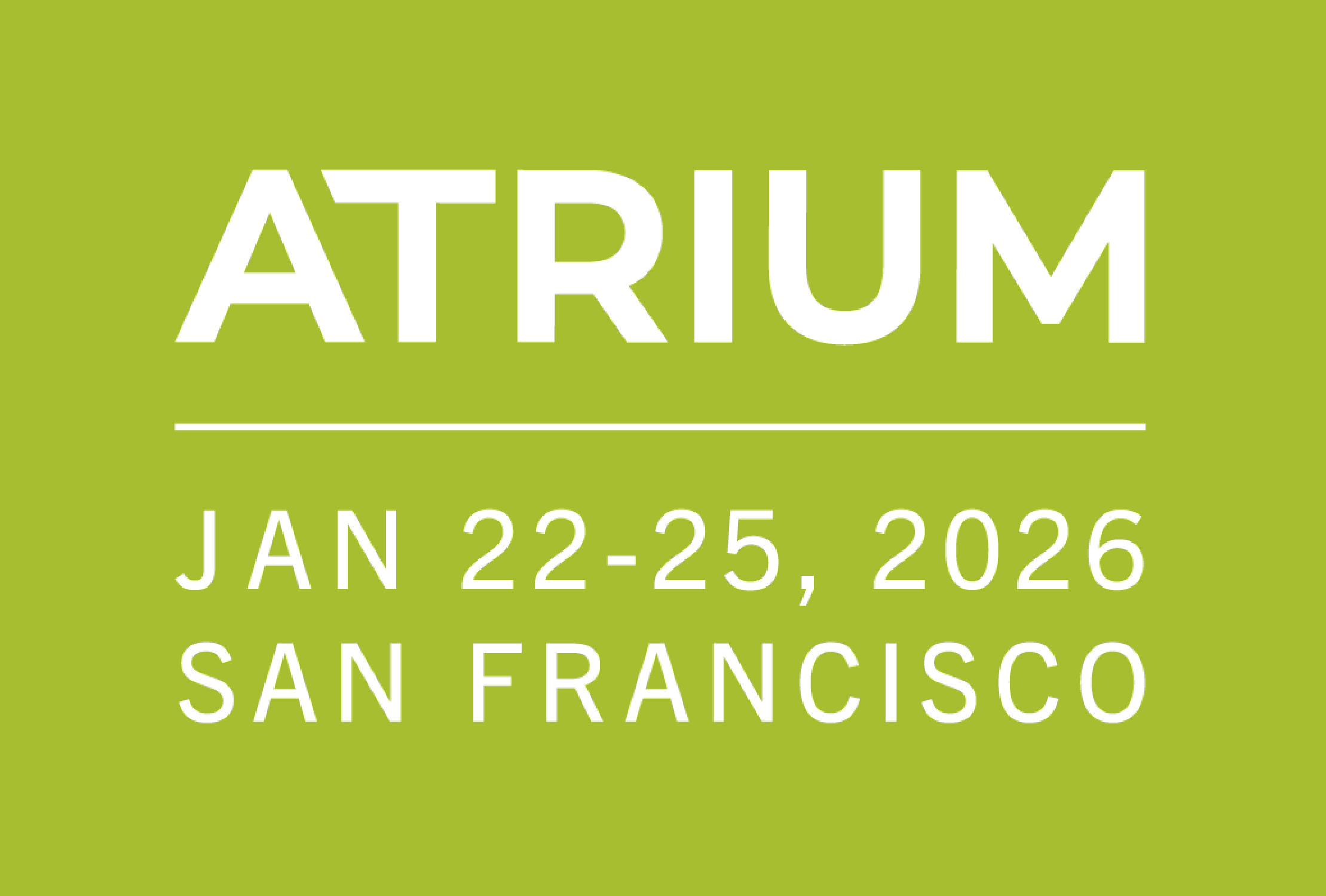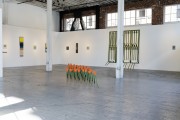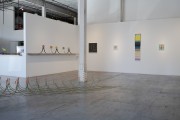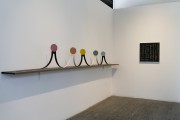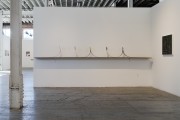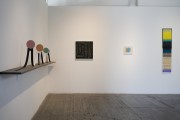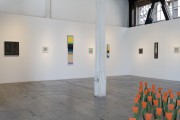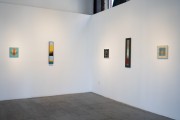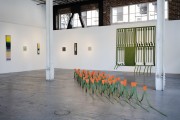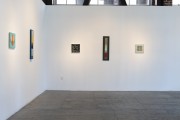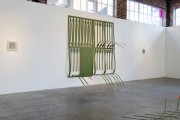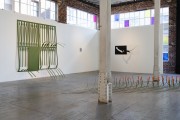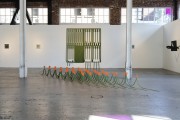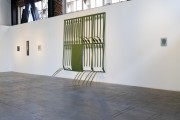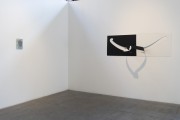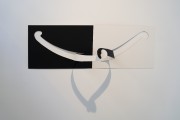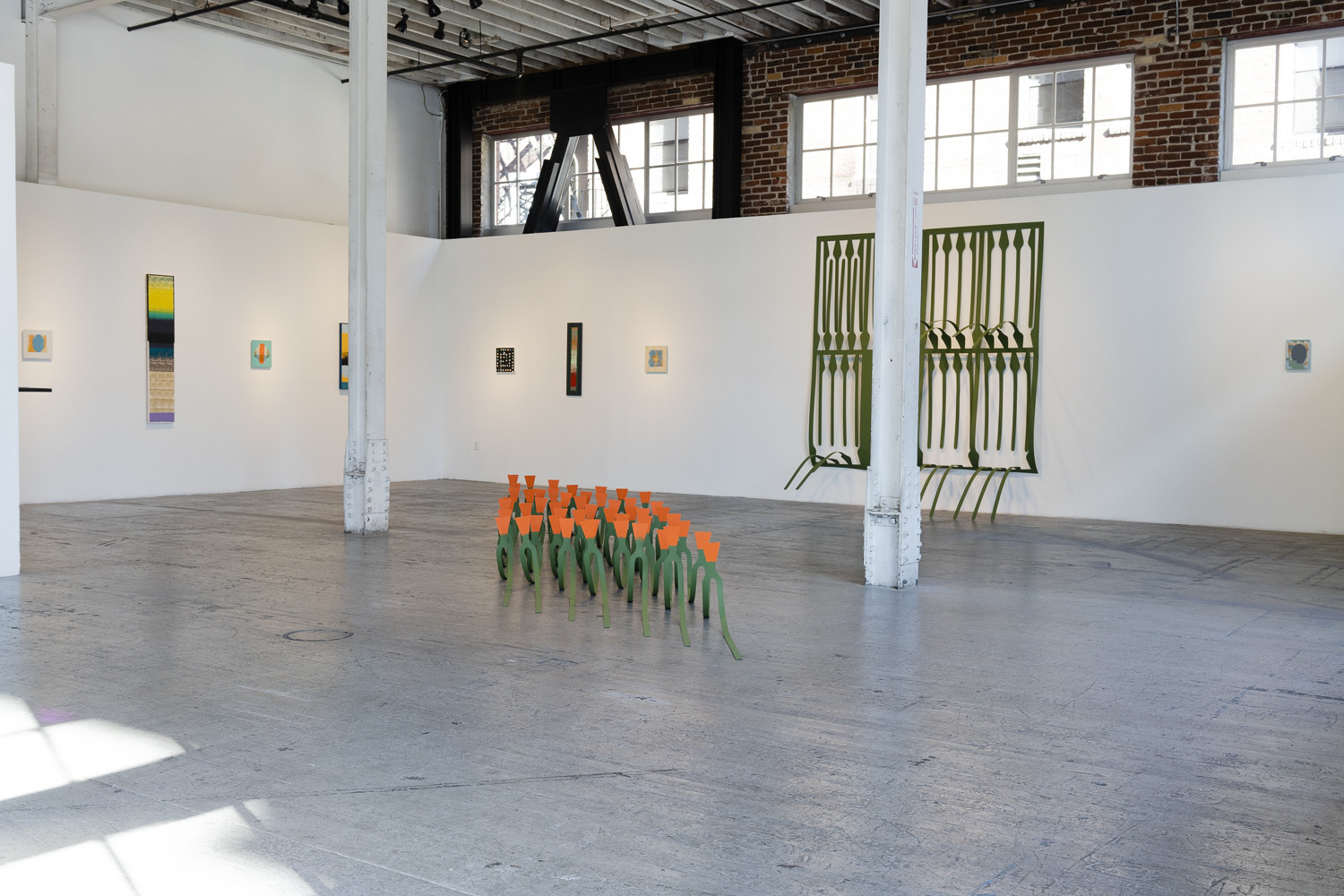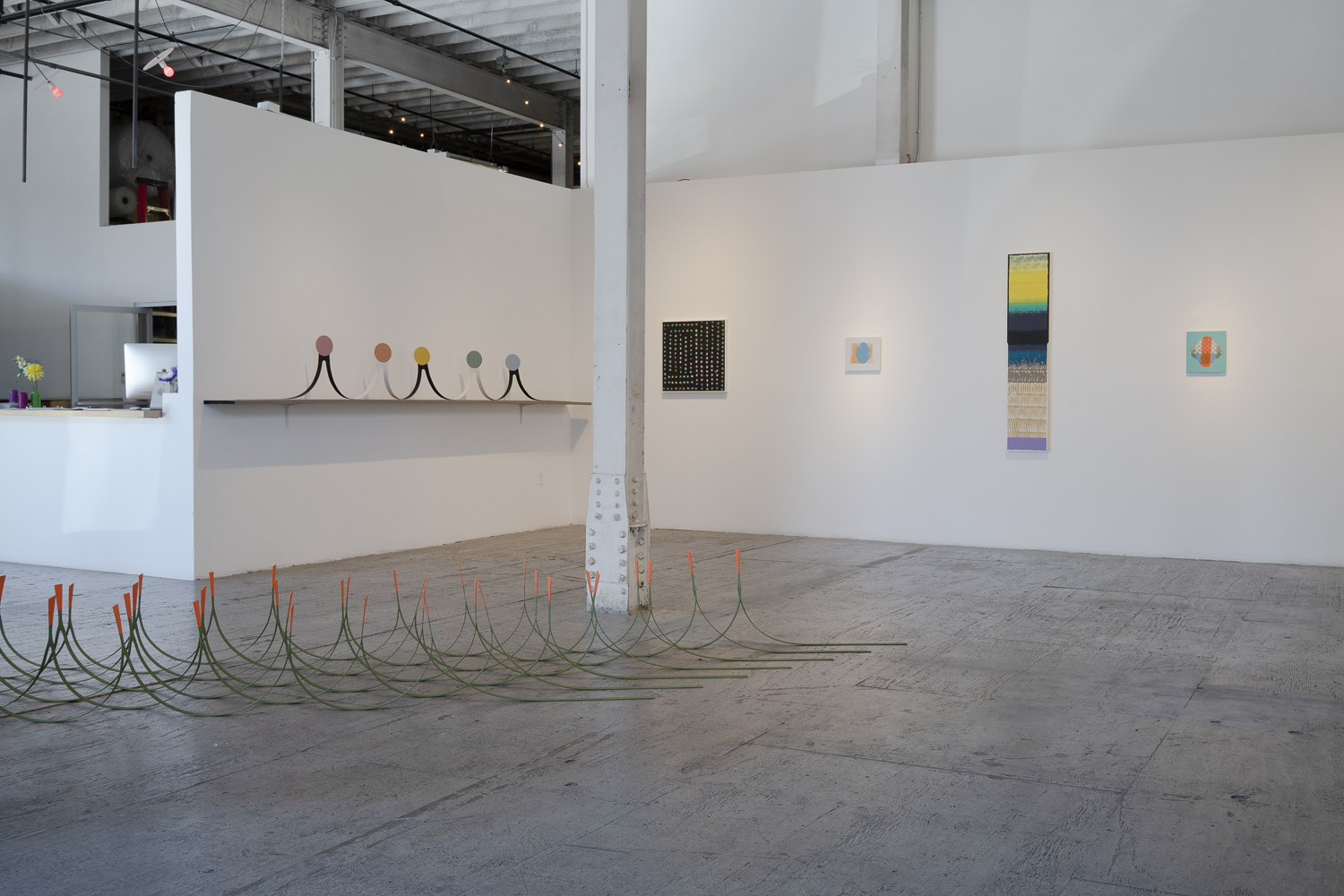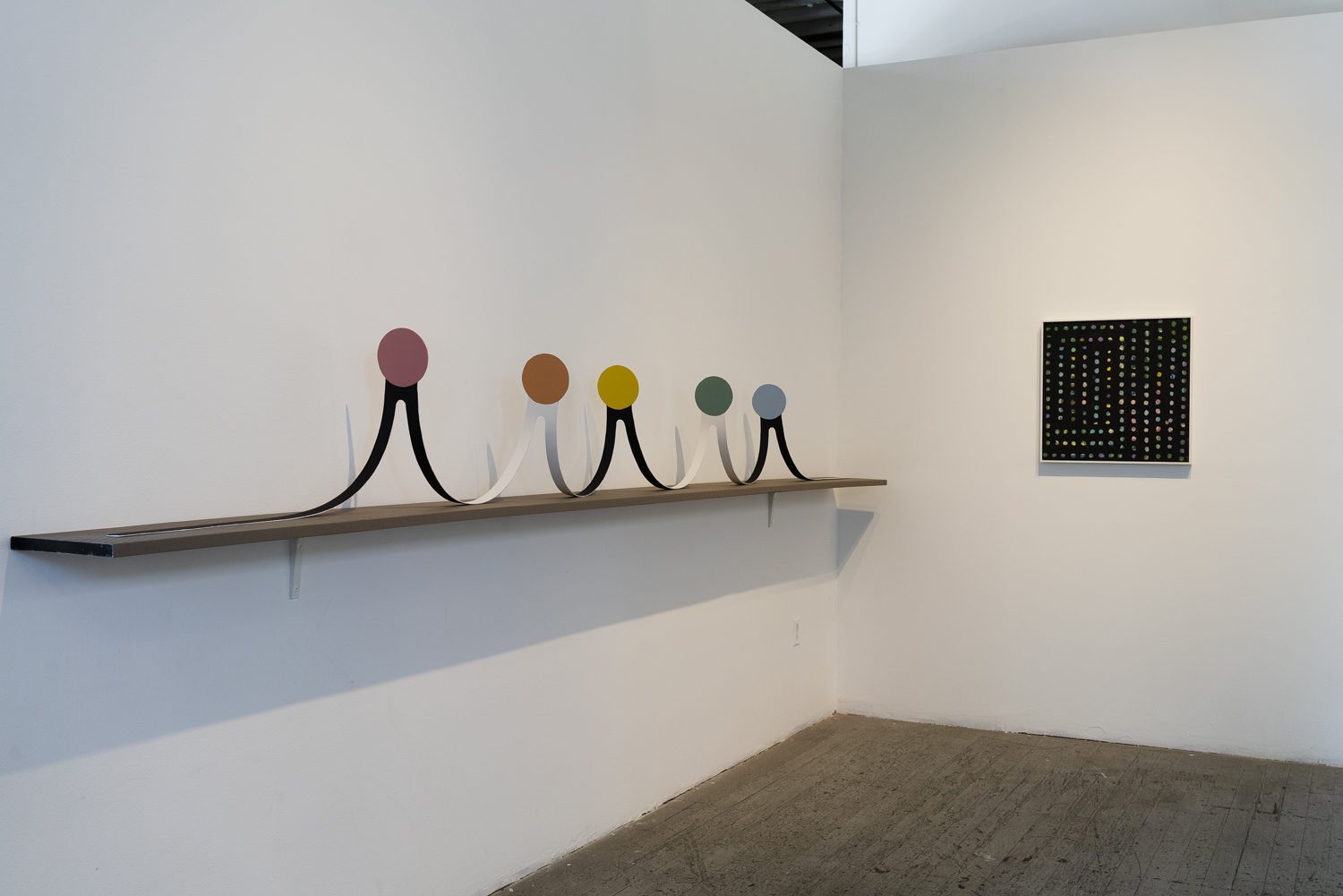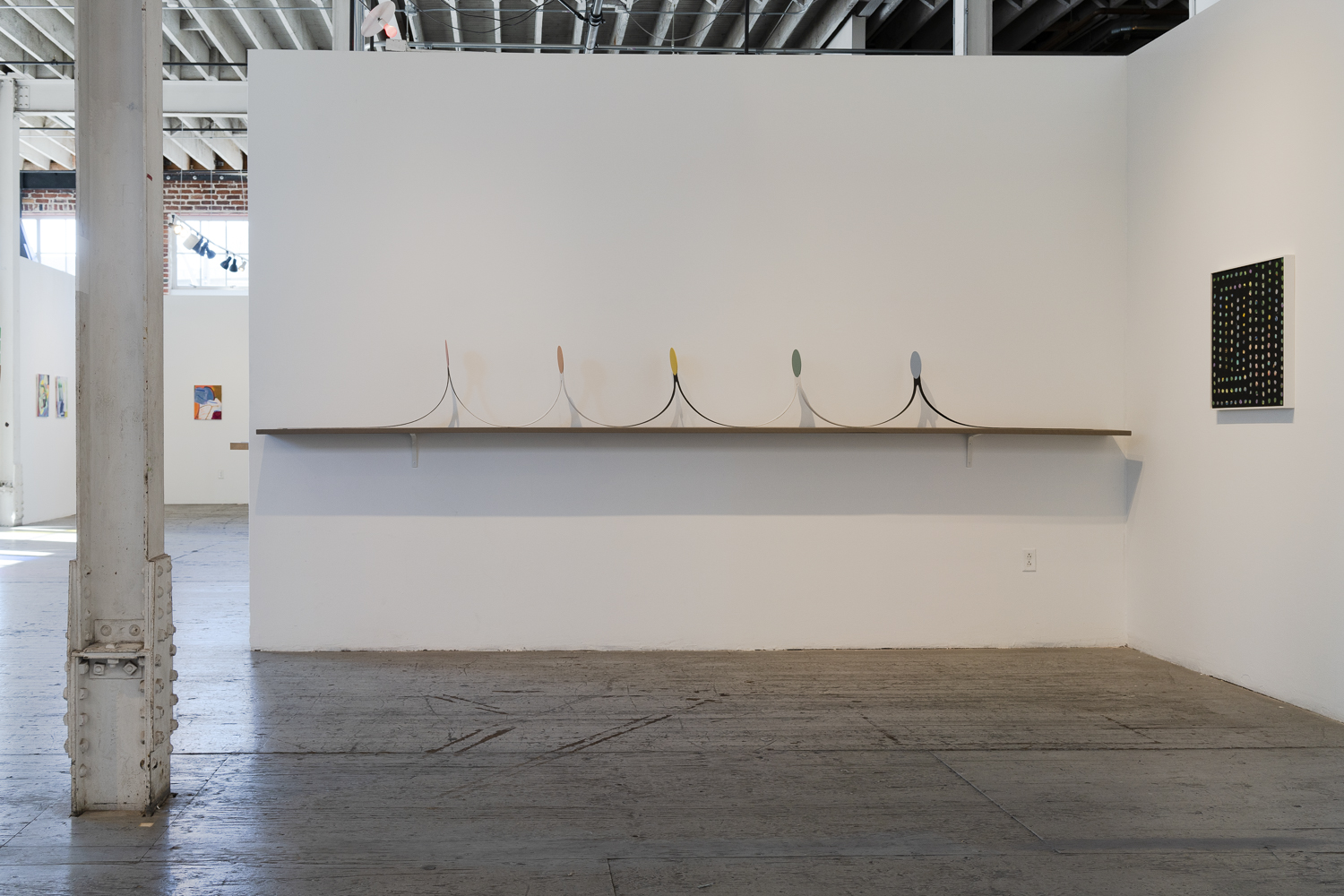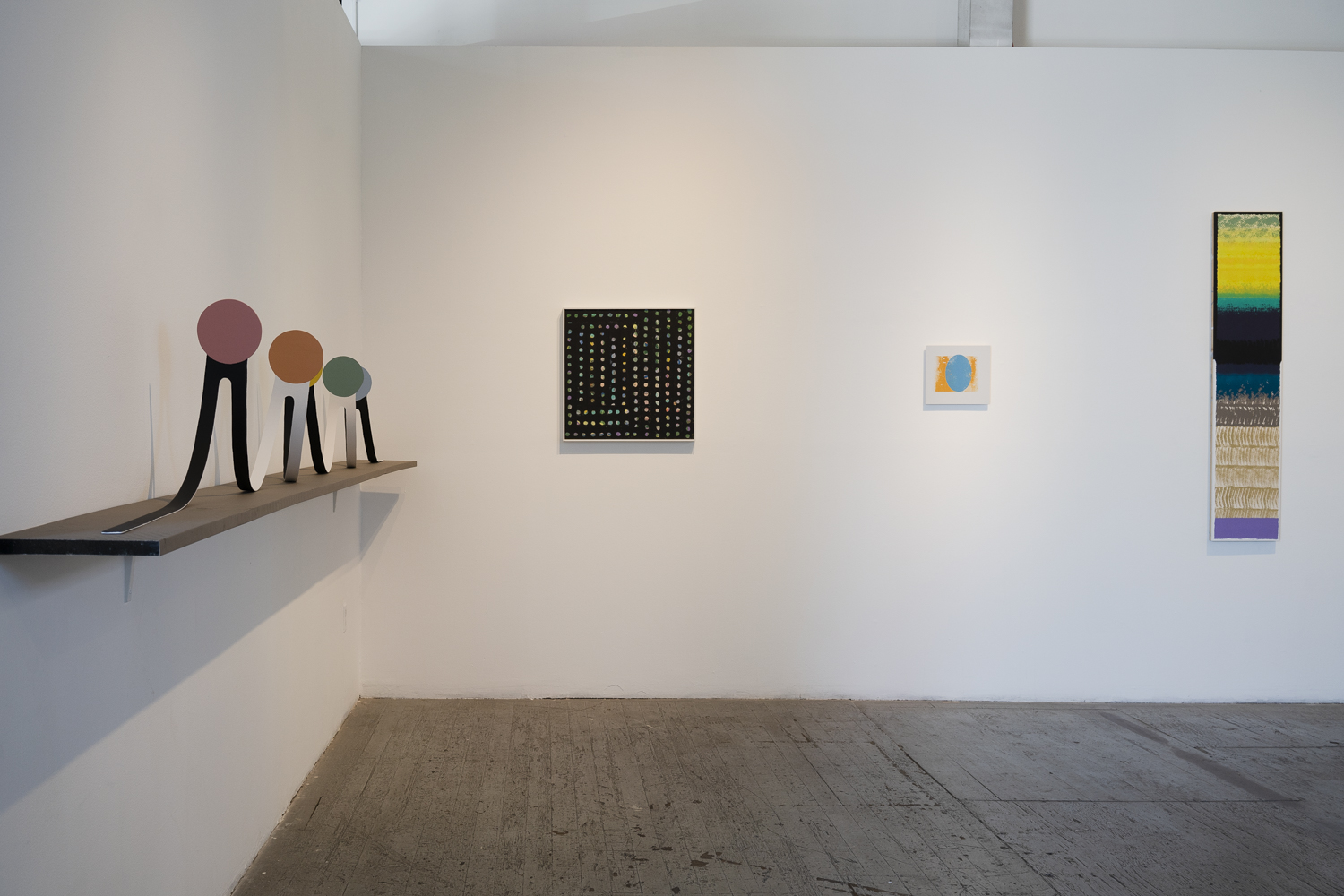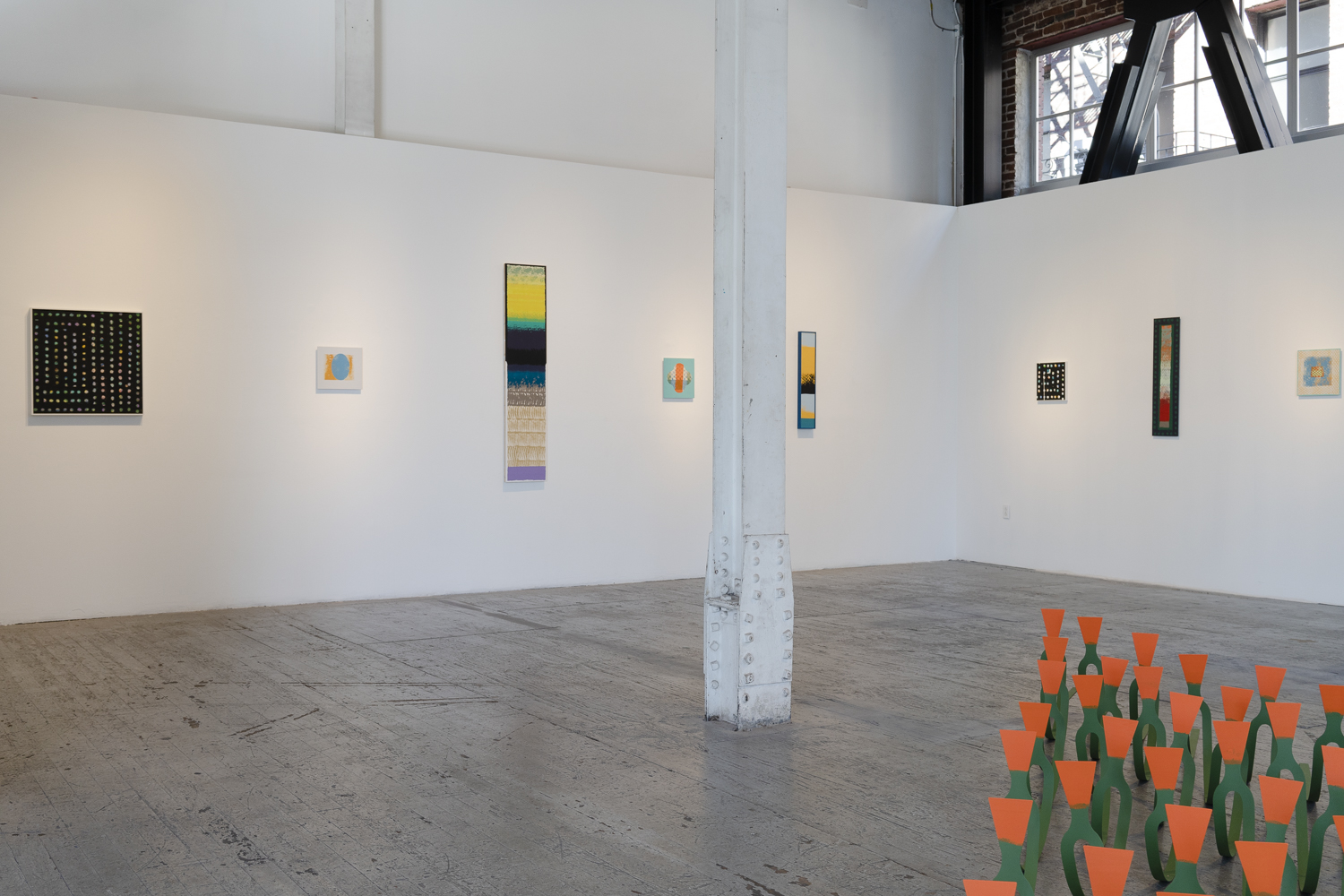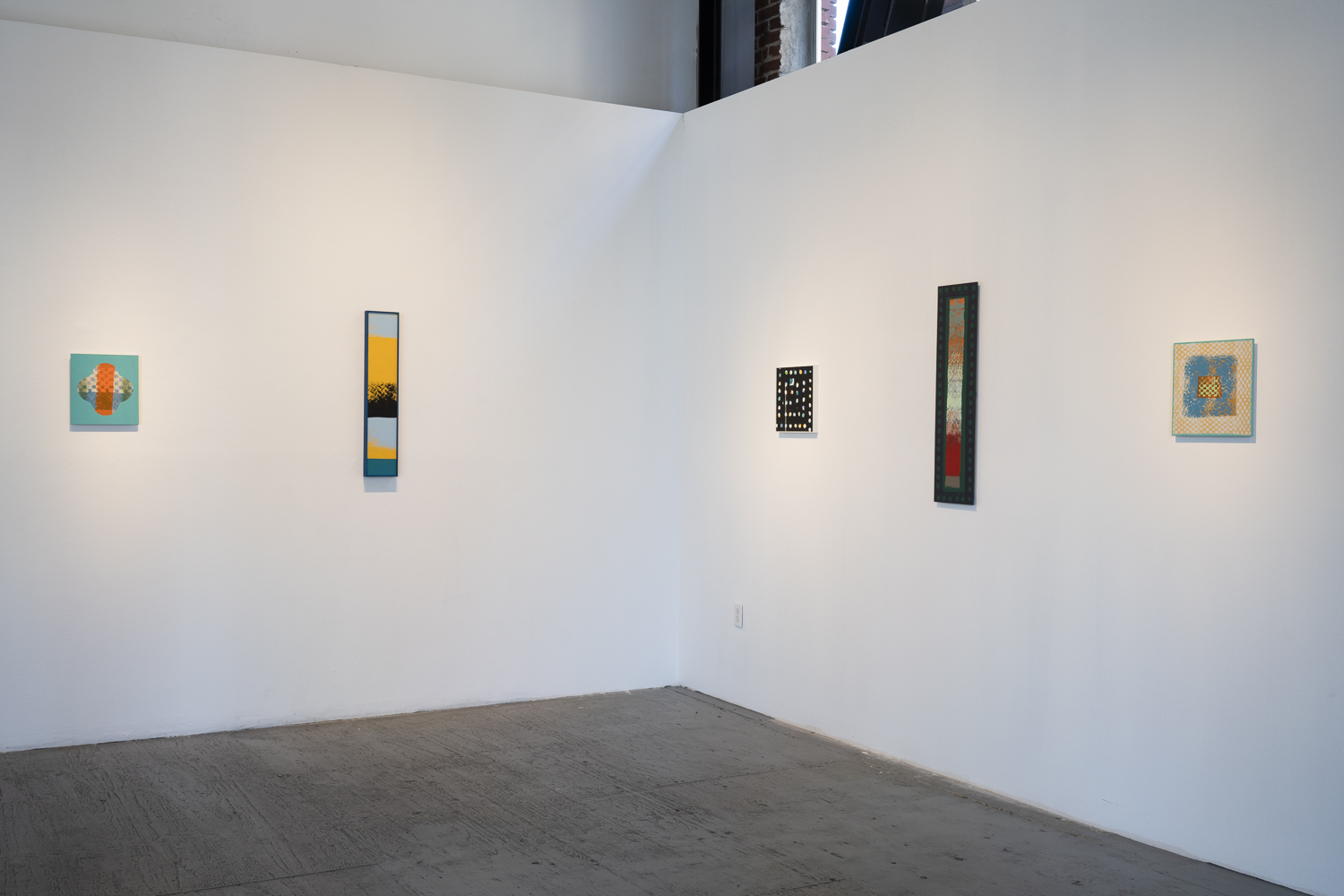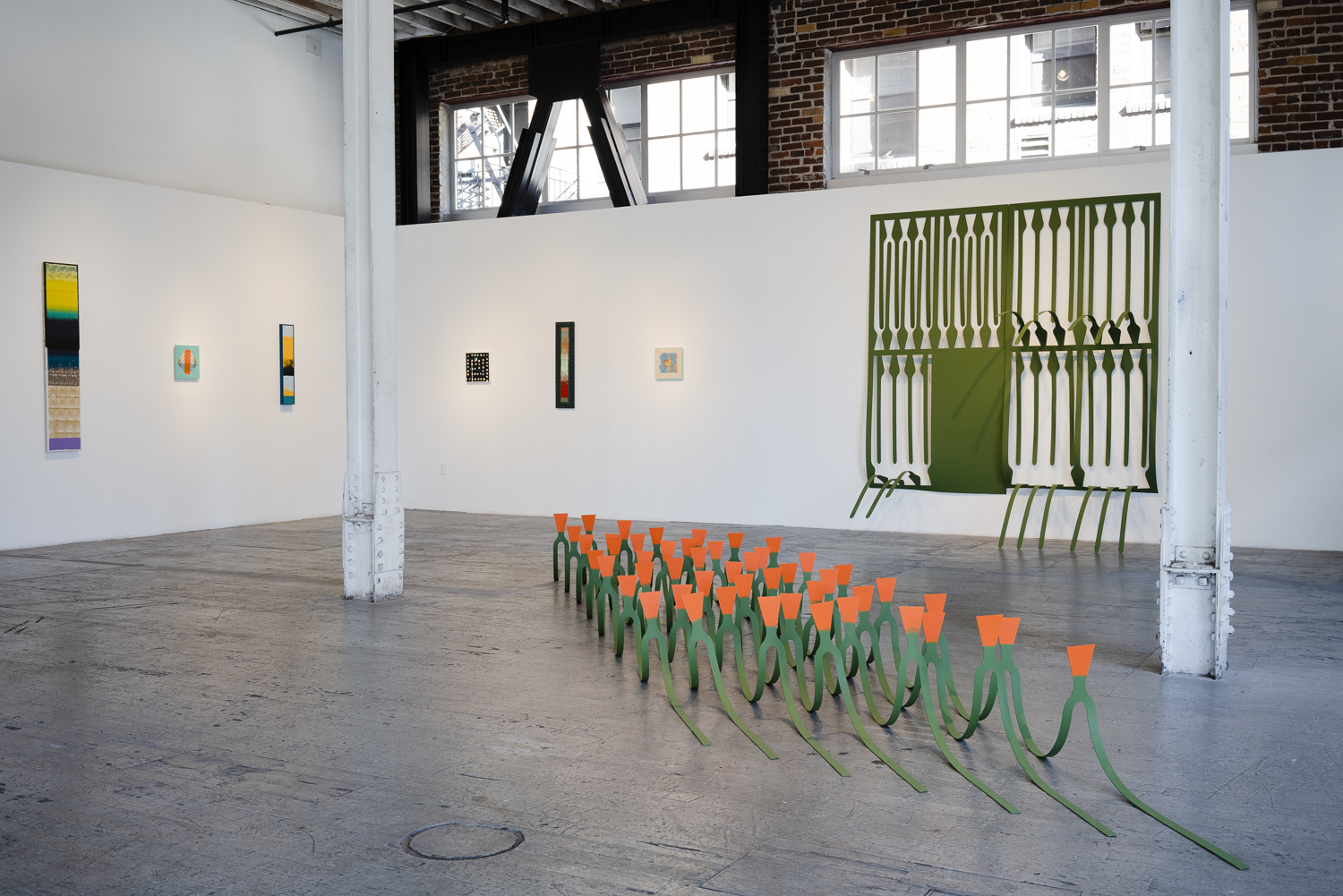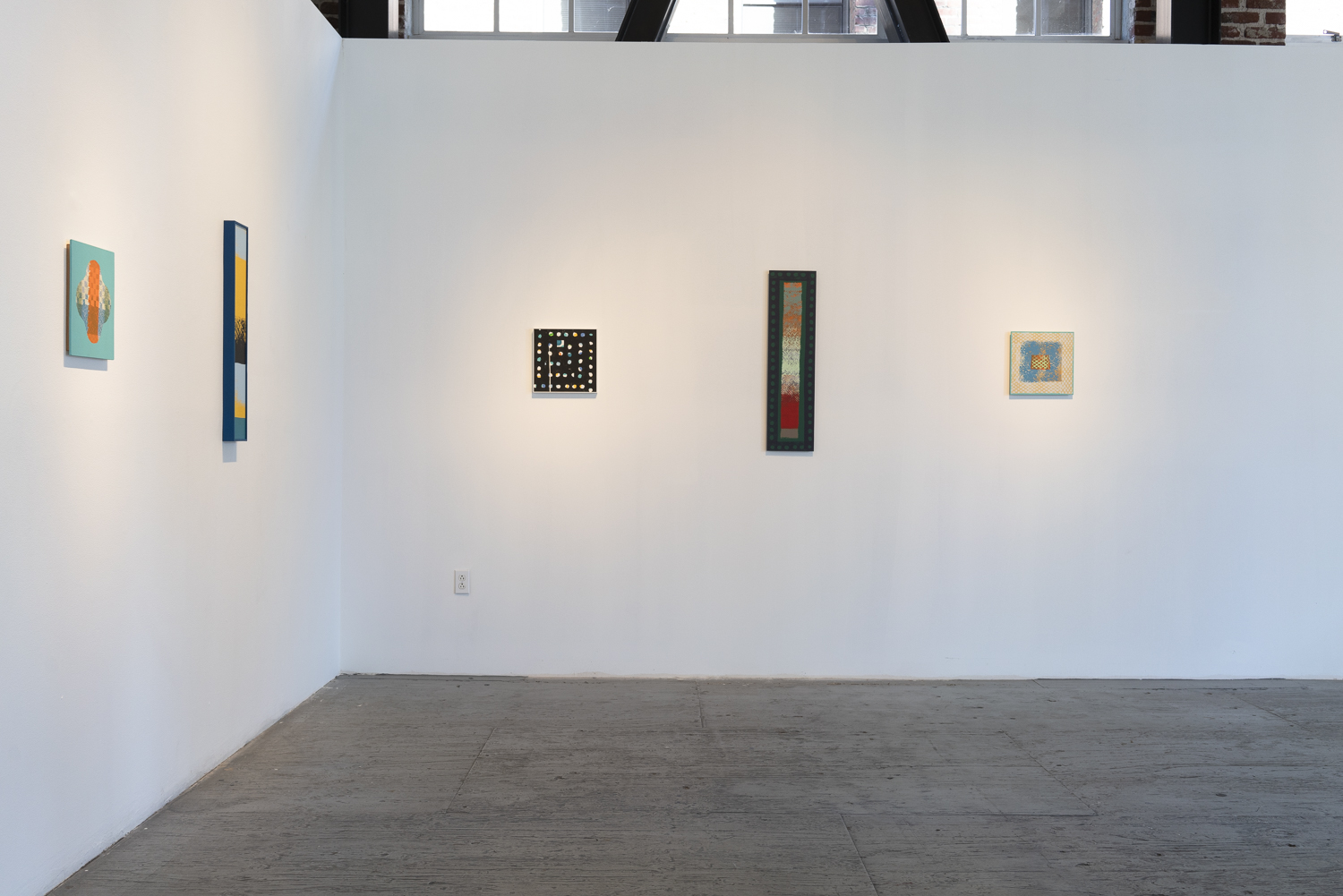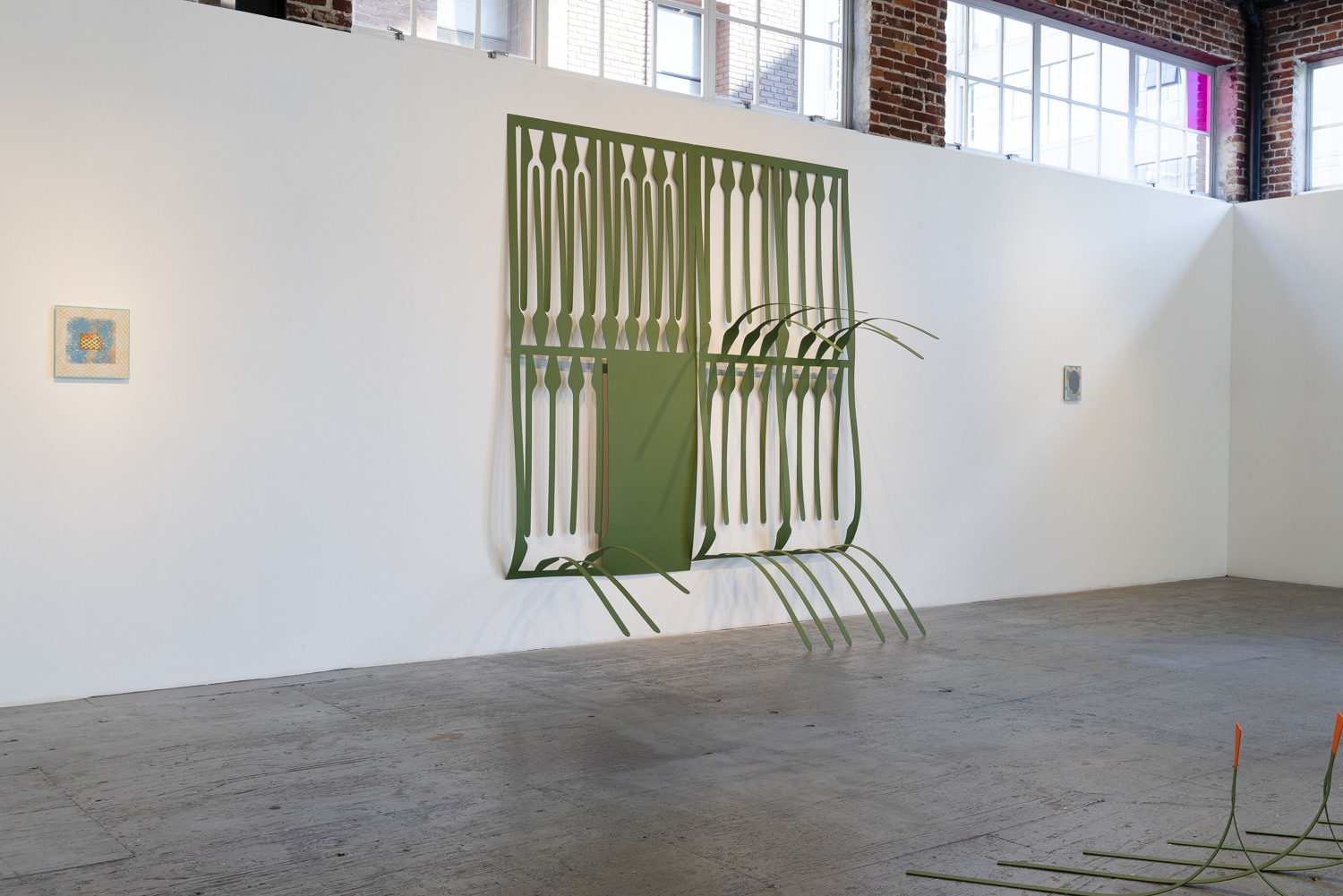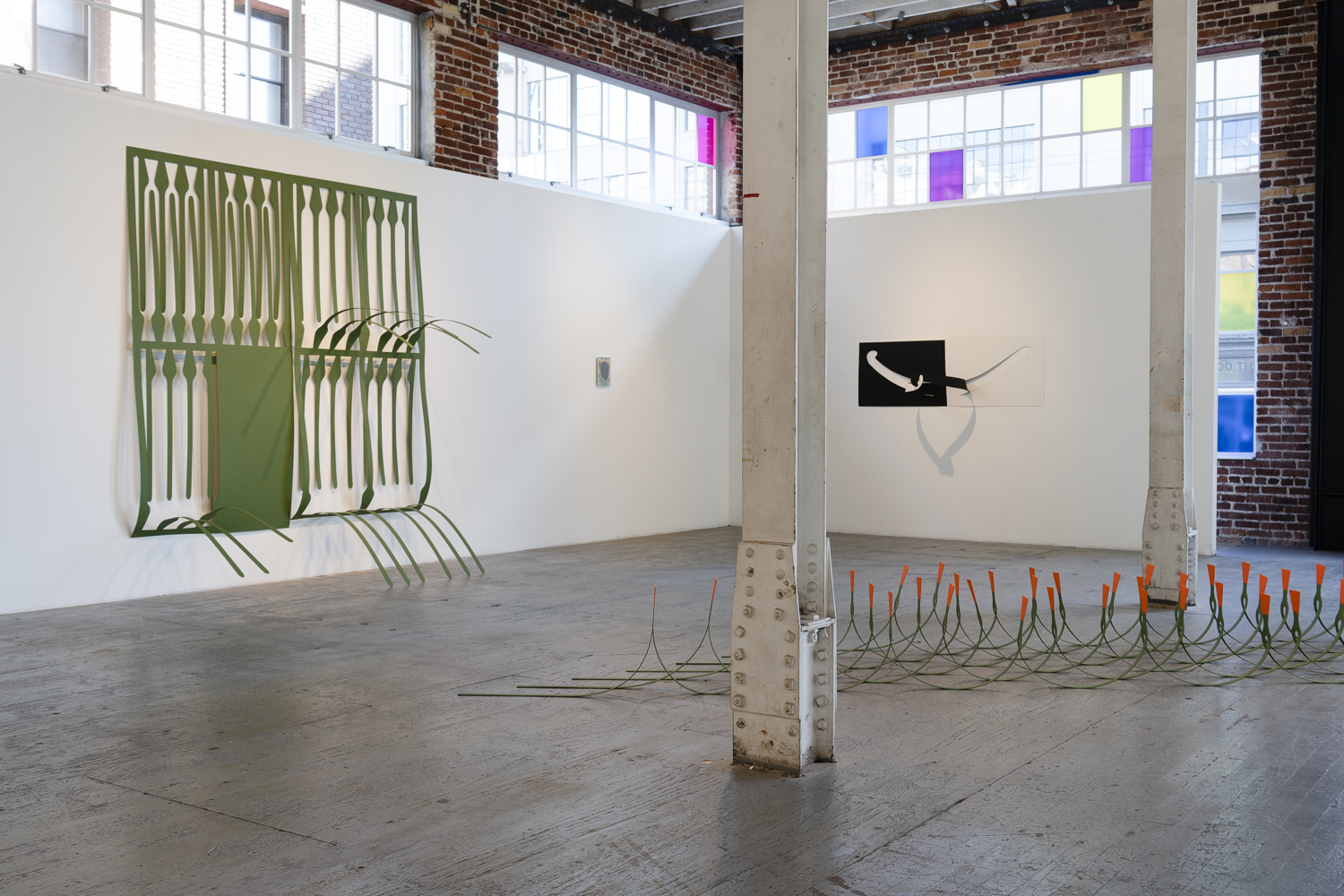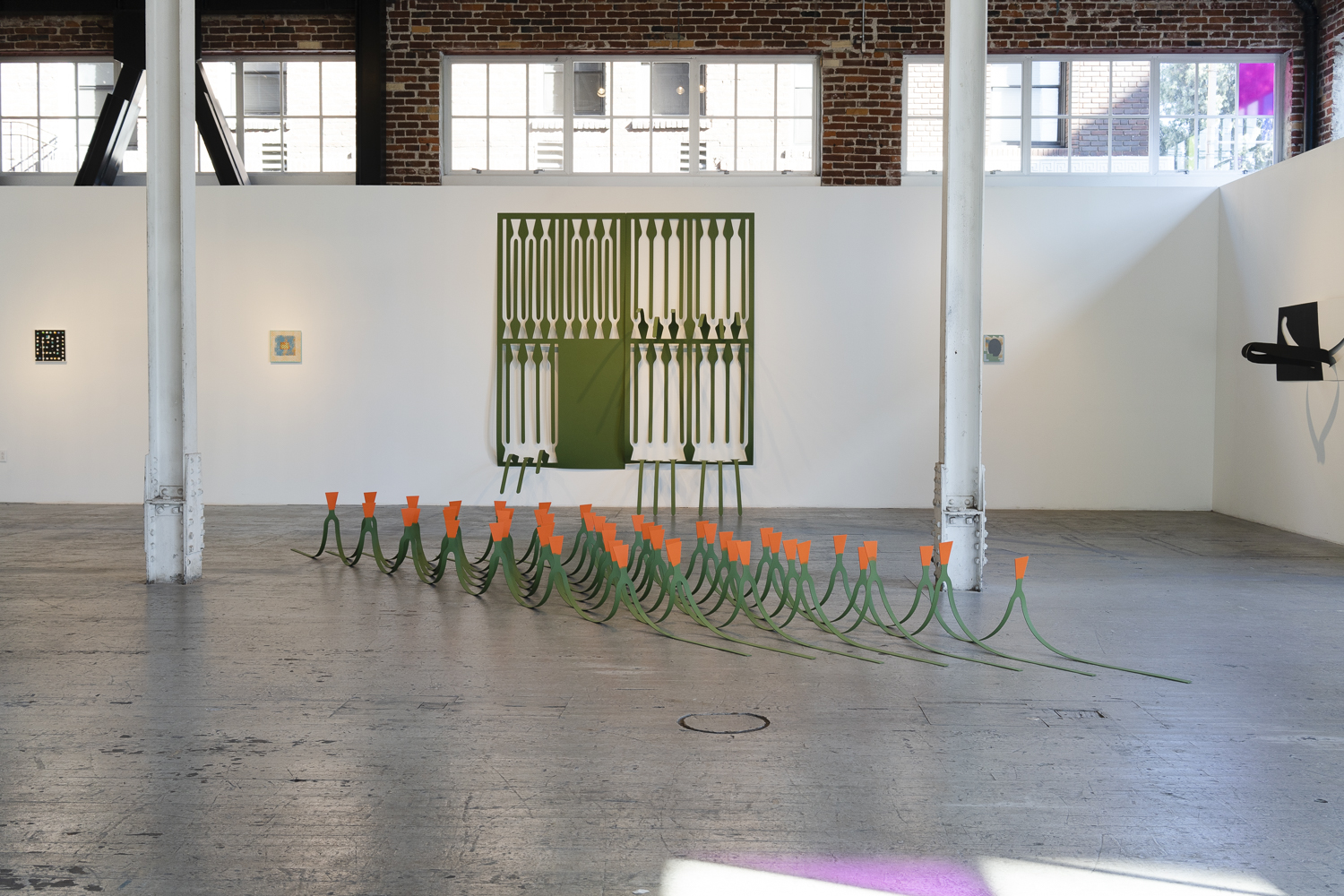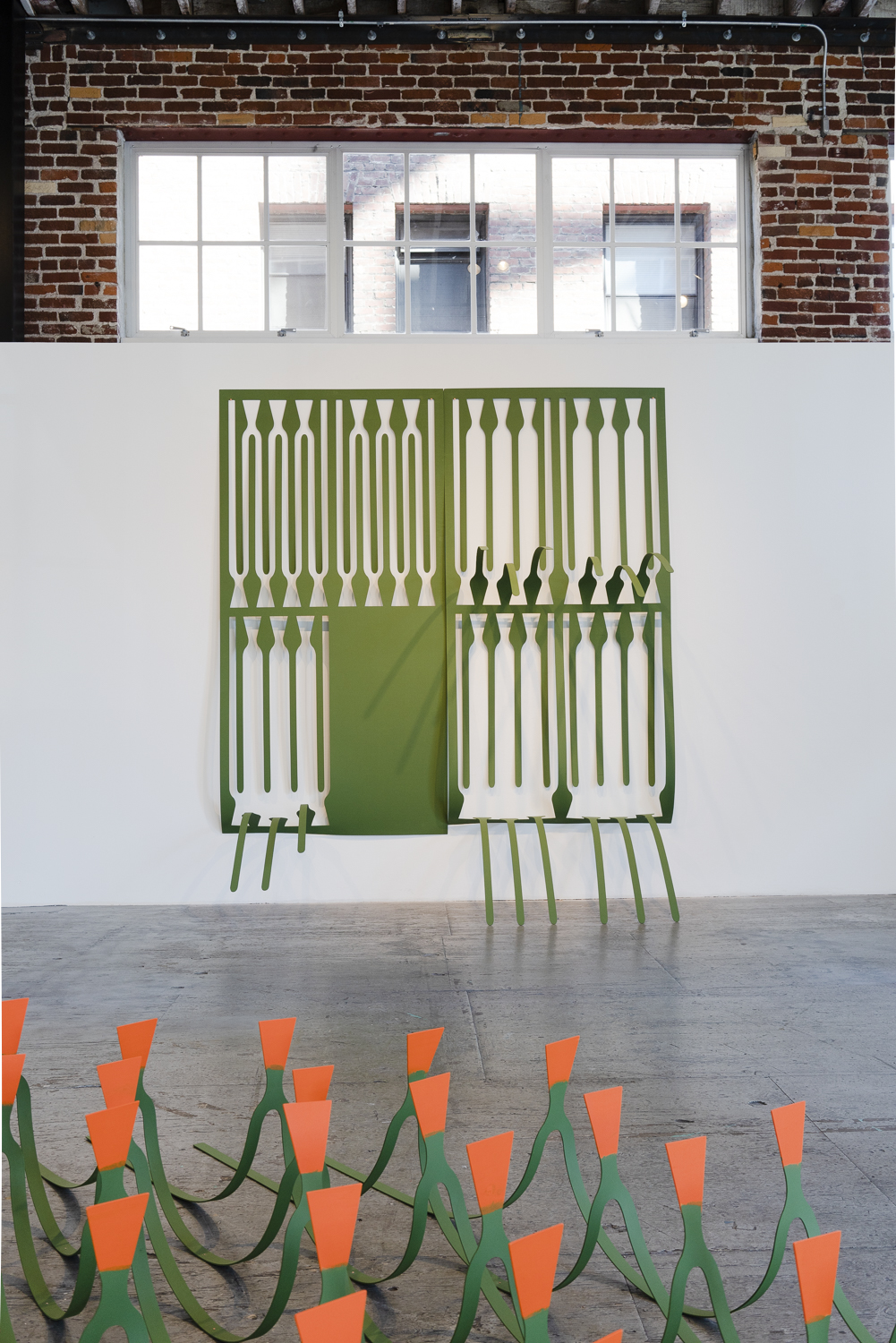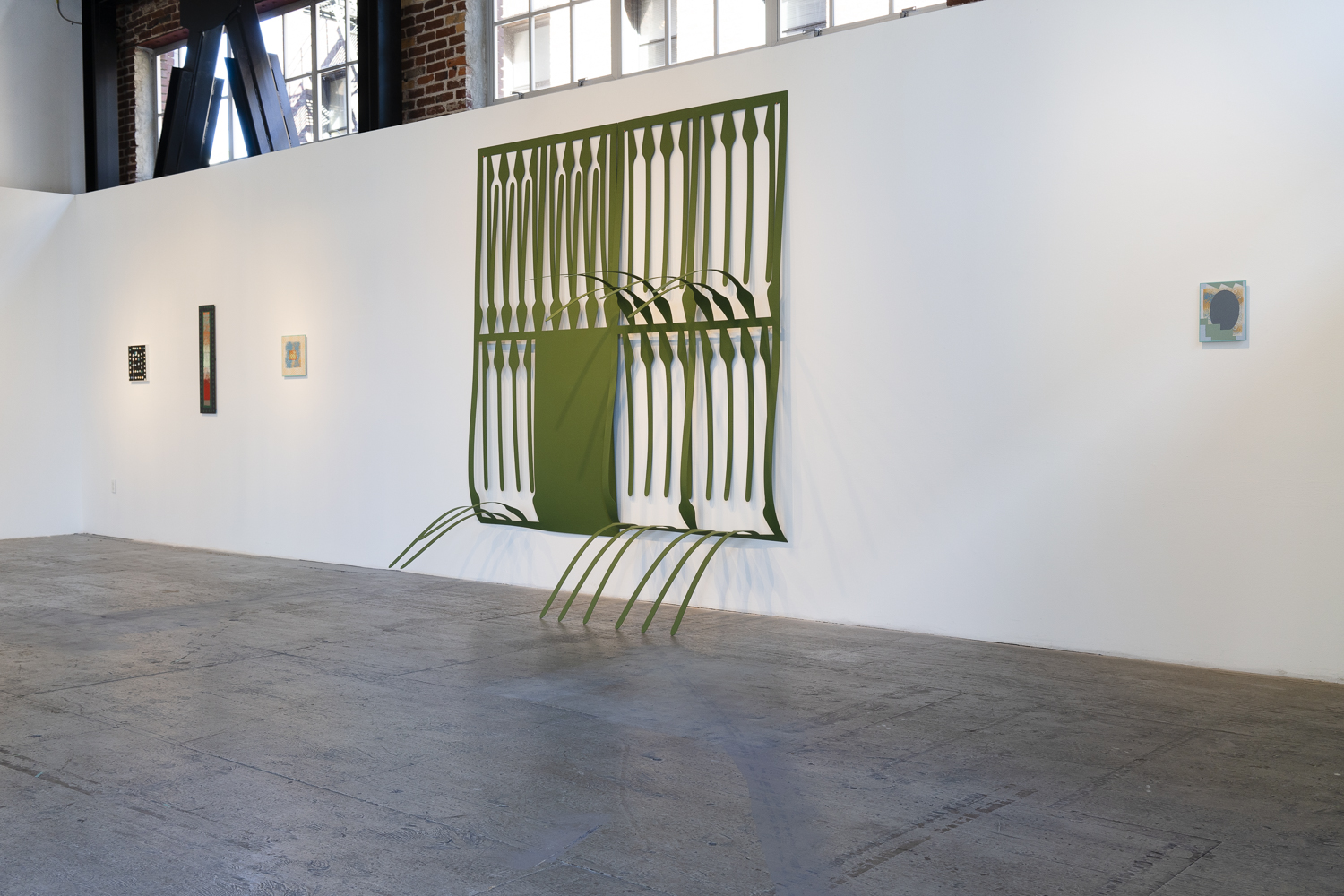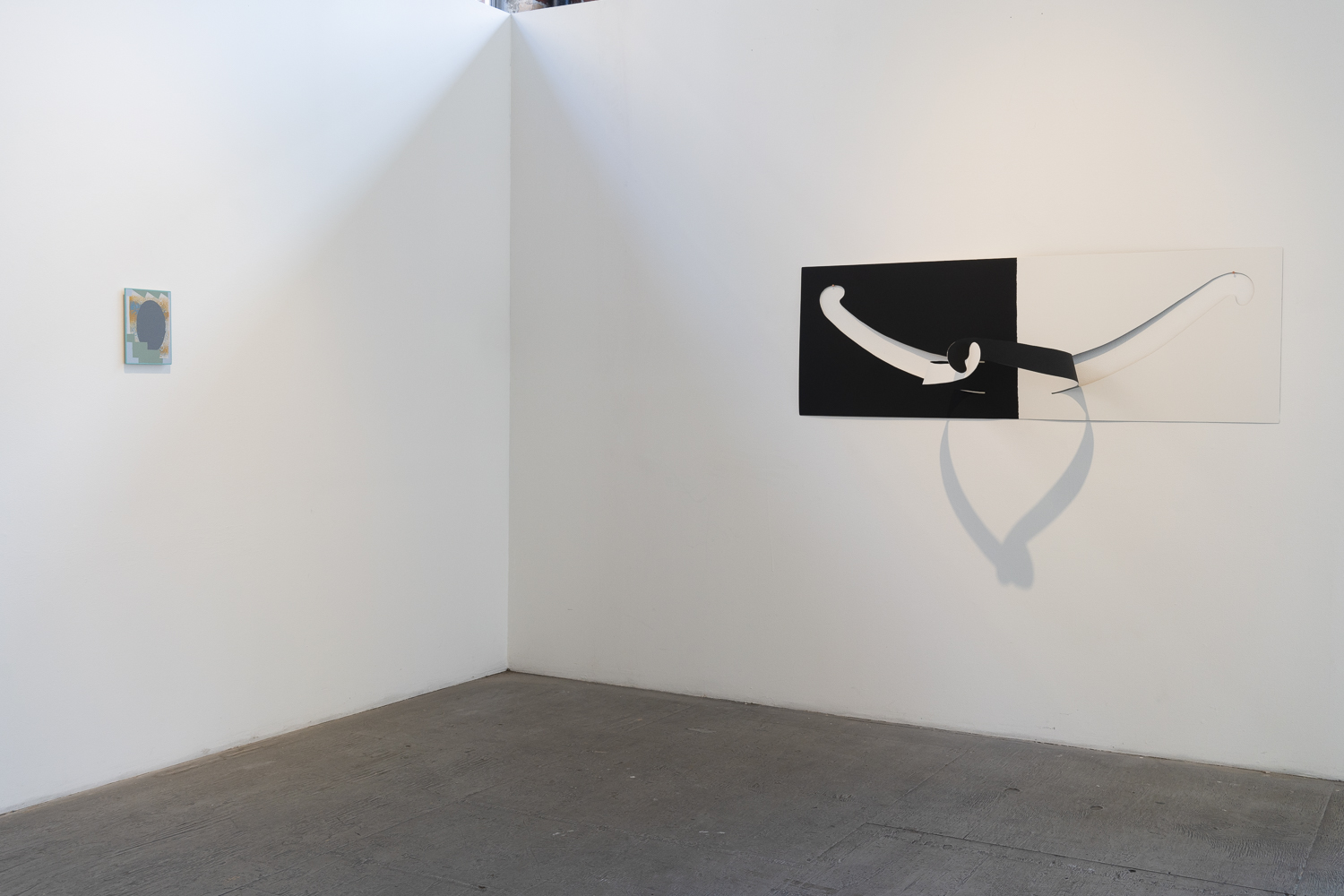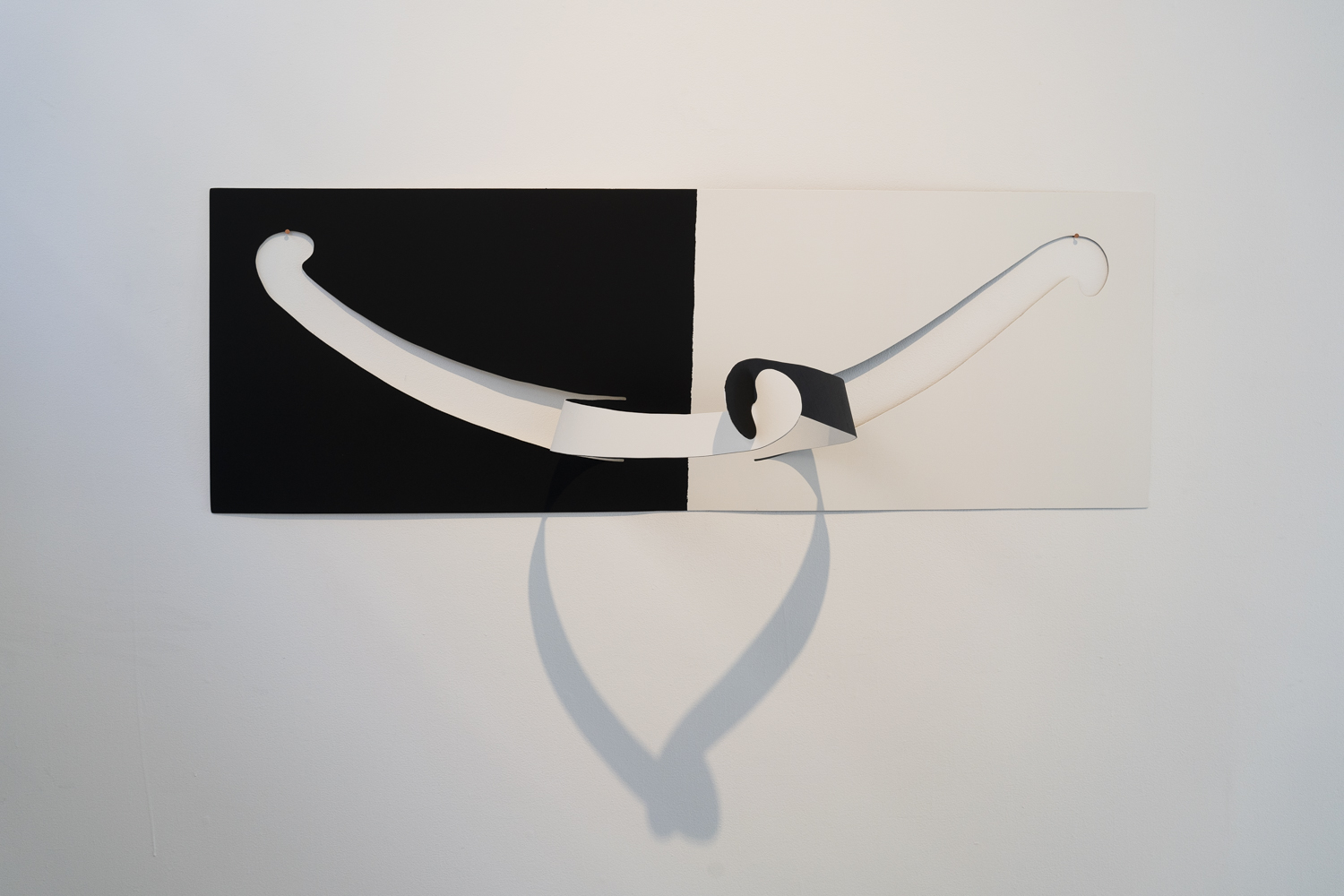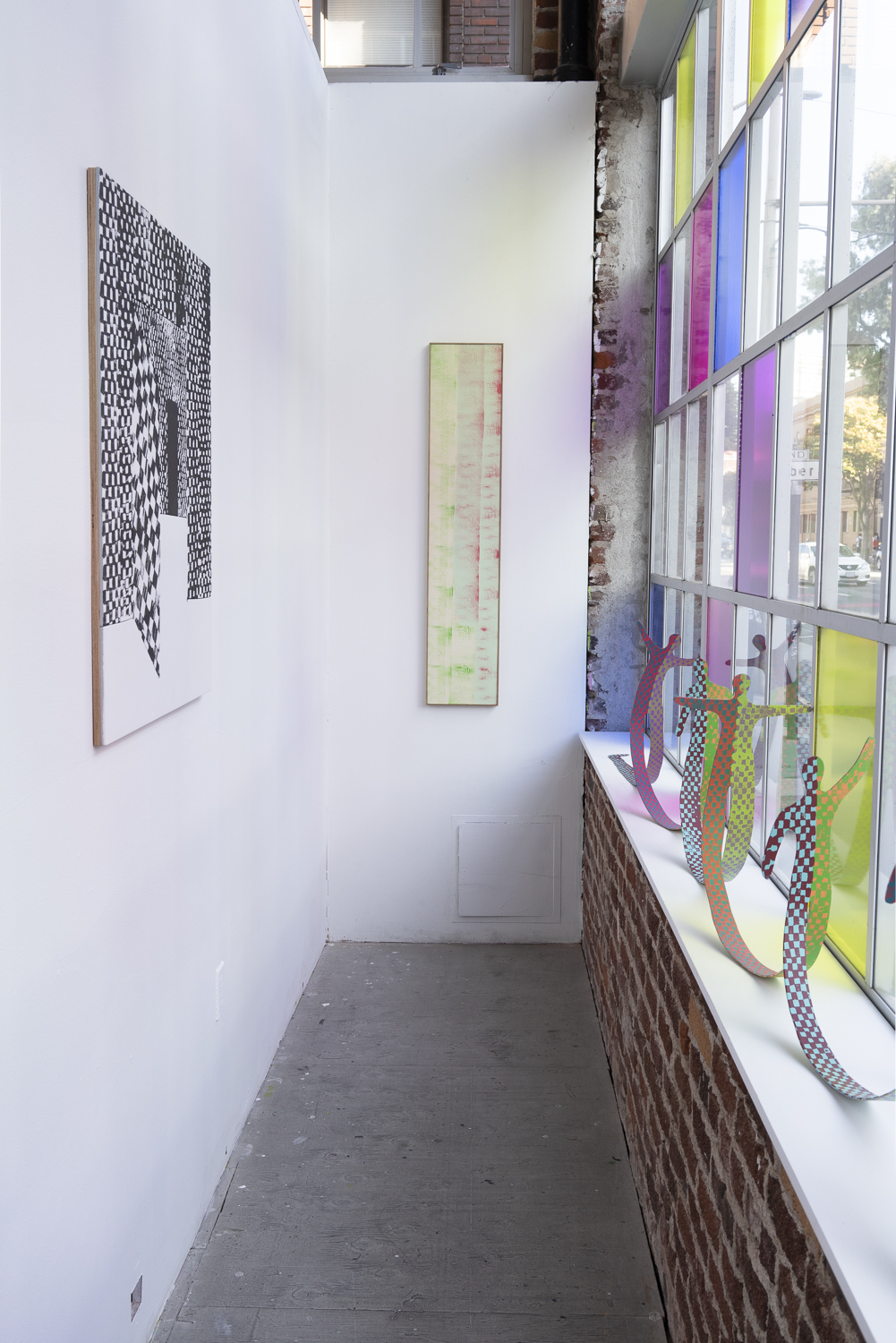Cutaway
Selected Works
About
Gallery 16 presents, Cutaway, artist Joe Ferriso’s first exhibition with the gallery, opening Friday, September 7th running through October 26th. This exhibition features a large-scale acrylic on bending plywood sculpture of wildflowers, surrounded by recent small-to-medium size paintings on panel that underscores Ferriso’s engagement with color relationships. The artist will be in attendance for the opening reception on Friday, September 7th from 6 to 9 PM.
Dominating a large plot of the exhibition space, Forty-Nine Un-Wildflowers: The California Poppy is a translation of the official California state flower. Installed on the floor and measuring over twenty feet long, Ferriso machine-cut two sheets of bending plywood to create seven lengths of seven flowers, totaling forty-nine individual poppies installed in a rhythmic formation. Sharing his interest in color observation as it occurs in art and nature, Ferriso brought a live flower to his local paint store and produced commercial house paint mixed from the hues of the hand-picked specimen.
In preparation for creating the California poppy work, Ferriso took inspiration from Henri Matisse’s quote, “There are always flowers for those who want to see them,” as well as Philipp Otto Runge’s words, “Color is the ultimate in art. It is still and will always remain a mystery to us, we can only apprehend it intuitively in flowers.” A poetic tie to Ferriso’s fascination with color, there is comedy and joy at the nexus of color and the labor that is undertaken to deploy it.
Prior to graduating with an MFA in painting at Stanford University, Joe Ferriso was a furniture designer by trade. Translating his keen mind for design and construction to his art practice, the artist explains, “I’ve become fascinated with developing two-dimensional paintings that can be expanded into three-dimensional forms.” Similar to the actual California poppy that closes each night and on cloudy days, these fabricated flowers open and close from two-dimensional to three-dimensional. In addition to the positive space that was routed from the plywood, the negative space is on view as a dimensional painting, spilling from the wall.
Even in Ferriso’s more traditional paintings on panel, the artist seeks to create a three-dimensional experience through his palette. Using a paint roller rather than a brush to create these abstract paintings generates textural randomness that removes the artist’s hand. In this flattened field, Ferriso’s color correlations produce a visual effect—one of hovering, vibrating spaces over layered fields of color. The artist considers, “there are no lines in reality, only color transitions which differentiate space.”




